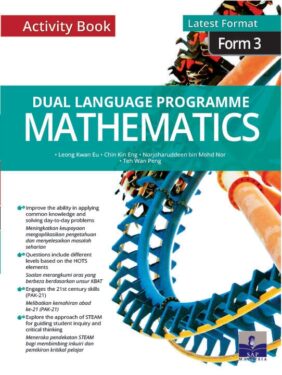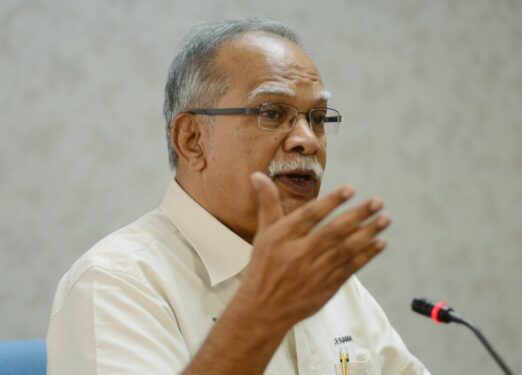THE problem in this country is that there is no end to language politics in public schools. What was ambitiously started as teaching of science and mathematics in English (PPSMI) had to give way to the Dual Language Programme (DLP).
The DLP which has to-date has been introduced in more than 2,000 primary and secondary schools in the country seems to be in a state of paralysis.
Some of the vernacular schools that opposed the DLP have accepted it especially Tamil schools. However, the Chinese vernacular schools are still opposed to the DLP.
The successful implementation of the DLP depends on consent from parents, teachers and pupils and school authorities.
The choice is whether the science subjects are to be taught in English or Malay. Some state leaders are mistakenly under the belief that DLP means teaching of science subjects in English and not as a choice.

DLP replaced the earlier policy of teaching science and mathematics in English (PPSMI) by accommodating the interests of the Malay nationalists who feared that Malay might be eventually replaced by English despite it being a national language of the country.
There was another reason to it. The lack of expertise in the teaching of science subjects and the pupils’ poor exposure to English could have been the probable cause of the introduction of the DLP.
‘Grinding to a halt’
In some schools, parents are surprised that the DLP is not being adhered to. Officials at the Education Ministry and schools are tight-lipped when it comes to implementation of the DLP programme.
As in the case of the PPSMI, the DLP which has been so ambitiously introduced seems to be grinding to a halt.

Language politics with emphasis on pre-eminence of Malay seems to act as a damper on the use of English as the medium of instruction in the teaching of science and mathematics.
It is a matter of time before the DLP is replaced with a policy that might give more weight to Malay.
Under the political circumstances of heightened ethnic and religious politics, there is a subtle move to the right on the part of the unity government. While Chinese national type primary schools are reluctant to adhere to the DLP, some Tamil national type schools have supported the DLP.
Strangely, it was the parents in certain Tamil schools that have protested against the non-implementation of DLP.
While officials at the Education Ministry can ascertain the occurrences of protests, the fact remains that under the existing ethnic and religious polarisation, the DLP might become a victim.
There is nothing much the Education Minister or Deputy Minister can do apart from blindly following the dictates of those in power. Understanding the protests over the non-implementation of the DLP is hardly the way to re-vitalise the much sought after programme.
If the country’s top leaders are not willing to go with the DLP, nothing much could be done to resuscitate the policy. Like all good policies, it is a matter of time before the DLP becomes part of the sad history of the country. – Aug 30, 2023
Prof Ramasamy Palanisamy is the former DAP state assemblyman for Perai. He is also the former deputy chief minister II of Penang.
The views expressed are solely of the author and do not necessarily reflect those of Focus Malaysia.









